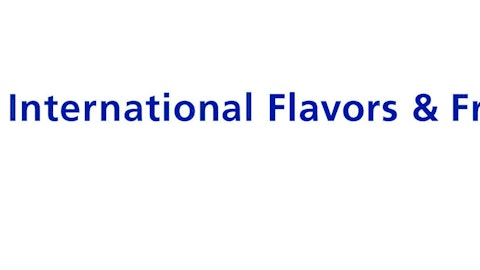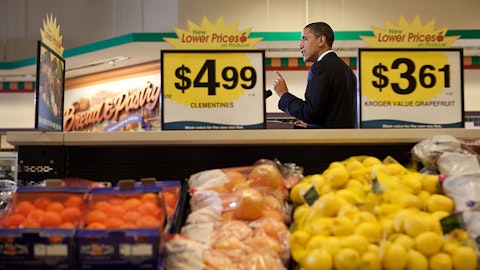McCormick & Company, Incorporated (NYSE:MKC) has increased its dividend for 30 consecutive years and paid uninterrupted dividends since 1925.

While the stock’s current dividend yield is just 2%, it has recorded a double-digit total return over each of the last 1-, 5-, 10- and 20-year periods. Very few companies have managed to create such consistent value for shareholders.
We are evaluating this excellent business for potential inclusion in our Top 20 Dividend Stocks portfolio.
MKC is not very popular among the funds followed by Insider Monkey. In the last round of 13F filings, 19 funds reported long positions in the company, holding less than 1% of the company’s stock at the end of September. Among the top shareholders of the company are Cliff Asness’ AQR Capital Management, Clint Carlson’s Carlson Capital, and David Shaw’s D. E. Shaw Co.
Business Overview
MKC manufactures and distributes spices, seasoning mixes, condiments, and other flavorful products to the entire food industry – retail outlets, food manufacturers, and foodservice businesses. The company was established in 1889 and incorporated in 1915. Some of MKC’s leading brands include McCormick, Lawry’s, Club House, Zatarain’s, Thai Kitchen, and Simply Asia.
MKC has two business segments – consumer (60% of sales, 80% of operating income) and industrial (40% of sales, 20% of operating income).
The consumer business sells spice, herb and regional favorite brands. The industrial business sells to nine of the top 10 global food and beverage companies and nine of the top 10 foodservice and restaurant chains. Its flavor solutions include snack seasonings, sandwich sauces, and branded foodservice products.
By geography, the U.S. is MKC’s largest market (55% of sales), followed by China (including joint ventures, 22% of MKC’s sales are from emerging markets). The company has brands in more than 135 countries around the world.
Business Analysis
MKC’s business is driven by its strong portfolio of brands, continuous product innovation, marketing investments, and gradual expansion into new product categories and geographies with organic growth and acquisitions.
The company’s history dates back to the 19th century, building up over 100 years of customer recognition of its iconic brands. Today, MKC is four times the size of its next largest global competitor and approximately 60% of MKC’s consumer sales are from brands that have number one market share positions in their categories. The McCormick brand is also ranked fifth overall on the Digital IQ Index of 114 food brands.
To reinforce its dominant market position, MKC invests heavily in branding. The company spent over $225 million on brand marketing support costs (over 5% of sales) and $100 million on advertising (2.3% of sales) in 2014. Smaller players or new entrants have a hard time competing for mindshare with consumers because of the substantial investments MKC makes to maintain its brand image.
Beyond branding, MKC invests in product innovation to keep its lineup fresh and relevant. Many of its products are prepared from confidential formulas developed by its research laboratories and product development teams. MKC spent over $60 million on R&D in 2014 and has 18 innovation centers around the world.
As a result of its focus on innovation, approximately 8-10% of MKC’s annual sales are from products launched over the last three years. The company is also staying relevant with e-commerce distribution and was named supplier of the year for “Grocery” by Amazon.com, Inc. (NASDAQ:AMZN).
Thanks to its strengths in branding and product innovation, many of MKC’s customer relationships have been active for decades. The company’s range of products is one of the broadest in the industry and also covers practically every price point, keeping MKC relevant regardless of the customer’s needs. Breaking up these relationships is no small feat for new entrants.
MKC is also able to harness its global distribution network to efficiently leverage its acquisitions. Some of the major acquisitions MKC has made over the last 15 years include Stubb’s barbeque (2015), Lawry’s (2008), Simply Asia (2006), and Zatarain’s (2003). These deals provide MKC with new products and markets to continue the company’s growth.
With almost an endless number of flavor categories, MKC can continue building its global growth platforms through acquisitions over the years.
Altogether, MKC targets long-term sales growth of 4-6%, including acquisitions, and earnings per share growth of 9-11% per year. The company has been remarkably consistent in achieving these goals throughout history, and we expect more of the same going forward.
Follow Mccormick & Co Inc (NYSE:MKC)
Follow Mccormick & Co Inc (NYSE:MKC)
Receive real-time insider trading and news alerts





